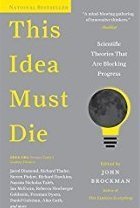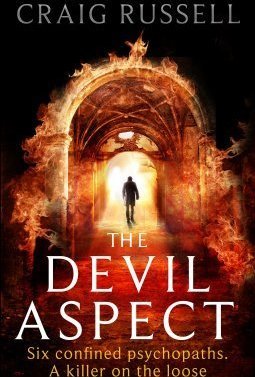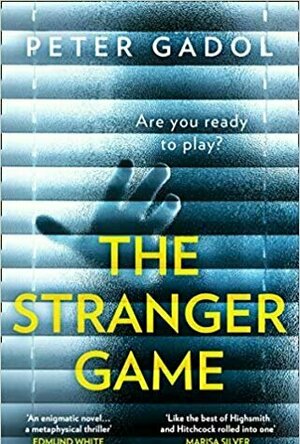BookblogbyCari (345 KP) rated This Idea Must Die in Books
Aug 14, 2018
There’s nothing like reading a popular science book to make you feel more worldly wise! The Idea Must Die is a compilation of over 150 separate articles, by different contributors, arguing that certain scientific concepts are blocking progress and should be put to rest.
Its scope is very broad - at first I felt the book was concentrating on physics, but it later went on to include psychology, linguistics, genetics, criminology, economics and computer science. The title of each article comes from the concept that it is argued should be put to rest.
There were plenty of articles I found interesting and learnt from, including: - “Long-term memory is immutable”, "One genome per individual", “Economic growth”, "Intelligence as property", "Continuity of time", Knowing is half the battle" and "Information overload", “Essentialism”, "Malthuanism" (which is the idea that population will outstrip food supply).
For the majority of the articles I agreed that the theory should be put to rest, and plenty that I thought it was good to see included. These included topics such as: race, nurture vs nature, reductionism. Cancer research theories were also addressed.
There were several topics I was surprised to see argued against, such as evidence-based medicine, scientific method, evolution, carbon footprint, string theory, culture, science being self-correcting.
It was refreshing to see "We are stone age thinkers" but I was disappointed to see the title "Languages condition worldviews". It was also a shame to see AI there, along with robot companions. Ideas in some chapters were disconcerting, claiming there's no self, no cognitive agency, and no free will.
There was a potentially useful article entitled "Scientific knowledge structured as literature" suggesting how publication could move to a new updated method.
With each article ranging in length from a mere 1 to 7 pages, it is an incredibly easy book to dip in and out of, or to fit around a busy week. At times there is a flow between one chapter and the next, but not always. Several of the articles proffer conflicting viewpoints, prompting the reader to reflect and wonder.
Some articles are more-well written than others, and similarly some arguments are more strongly put forward. Usually only one argument is made per article, but at times there were several. I believe some of the articles were chosen for their brevity, which is a shame because some of the articles could use a stronger argument. Some articles are hard to get your head around. The language is not always accessible and often presumes reader already has some knowledge of the subject. Although intriguing to begin with, with so many articles it began to feel dry and laborious at about 60% through. Some articles I deliberately skipped, others I attempted but found impenetrable.
It’s a refreshing read if you haven’t picked a science book in some time and it’s definitely a thought-provoking read if you feel confident that you can get to grips with the material.
For more of my reviews, check out www.bookblogbycari.com
Ivana A. | Diary of Difference (1171 KP) rated The Devil Aspect in Books
Feb 3, 2020
<a href="https://diaryofdifference.com/">Blog</a>; | <a href="https://www.facebook.com/diaryofdifference/">Facebook</a>; | <a href="https://twitter.com/DiaryDifference">Twitter</a>; | <a href="https://www.instagram.com/diaryofdifference/">Instagram</a>; | <a href="https://www.pinterest.co.uk/diaryofdifference/pins/">Pinterest</a>;
<img src="https://i1.wp.com/diaryofdifference.com/wp-content/uploads/2019/10/Book-Review-Banner-26.png?resize=768%2C432&ssl=1"/>;
<b><i>The Devil Aspect by Craig Russell was a very pleasant read for me for many reasons! I am so glad I got the chance to read it!
The Plot</i></b>
A terrifying novel set in Czechoslovakia in 1935, in which a brilliant young psychiatrist takes his new post at an asylum for the criminally insane that houses only six inmates–the country’s most depraved murderers–while, in Prague, a detective struggles to understand a brutal serial killer who has spread fear through the city, and who may have ties to the asylum.
Psychiatrist Victor is starting a new job in the Asylum where the Devil’s Six are – Czech Republic’s most dangerous murderers. Victor has a theory by the name of the Devil Aspect, where he believes that is manifested in these six murderers. He believes it comes out in certain circumstances, making these people commit crimes, but not being aware they have done it. Something similar to a split personality, but in this case, the murderers think that the Devil is next to them, and he is making them do all these things.
<b><i>My thoughts</i></b>
This book was such a pleasurable roller coaster. I wasn’t able to put it down and I read it in only a few days. The writing is unbelievable and I am going to be picking up other books from this author, for the sole reason of his writing. The Devil’s Aspect was so intriguing and it kept me on my toes at all times. I found it extremely enjoyable.
The blend of mythology, culture and psychology is perfectly put together, and having lived in the Balkan countries, I can easily relate to many of the culture aspects. It was perfectly described and I felt as if I am in 1935 together with the characters. The time and place are wonderfully written, with incredible accuracy.
The ending was the most pleasurable, and without spoiling anything, I will only say a few things… Be ready for everything to happen. This book has many twists and many scenes where dangerous things are happening. A lot of intensity which I devoured with great pleasure. If you are coming for an adventure, you will get even more that you bargained for.
<b><i>Proceed at your own risk! And good luck!
Thank you to the team at LoveReading UK and the author, Craig Russell, for sending me a copy of this book in exchange for an honest review.</i></b>
<a href="https://amzn.to/2Wi7amb">Wishlist</a>; | <a
<a href="https://diaryofdifference.com/">Blog</a>; | <a href="https://www.facebook.com/diaryofdifference/">Facebook</a>; | <a href="https://twitter.com/DiaryDifference">Twitter</a>; | <a href="https://www.instagram.com/diaryofdifference/">Instagram</a>; | <a href="https://www.pinterest.co.uk/diaryofdifference/pins/">Pinterest</a>;
Ivana A. | Diary of Difference (1171 KP) rated The Stranger Game in Books
Feb 3, 2020
<img src="https://diaryofdifference.com/wp-content/uploads/2019/08/Book-Review-Banner-14.png"/>;
When Rebecca's boyfriend Ezra goes missing, she knows something is not quite right. But when she reports it to the police, they don't seem to really care. They suspect he's been playing ''The Stranger Game'', a game that went viral, where people take social media behaviour on the streets and start following each other in real life.
<b><i>The rules of the game are simple:</i></b>
<i>* You must choose a random person.
* You cannot make contact with other people (or tell them you're playing the game)
* You mustn't follow the same person twice.</i>
But as the game spreads, the rules start to change, and people start disappearing without a trace.
In hope that she she can find her man, Rebecca starts playing the game herself. But the more she gets involved, the bigger the risk is.
<b>When I read the synopsis about ''The Stranger Game'' by Peter Gadol, I knew I had to read the book. It is a plot that intrigues me and I am always up for reading more psychological thrillers.
But this book's delivery was weak. I found the story very slow and unintriguing, with no exceptional plot twists and with a disappointing and rather predictable ending. </b>
Rebecca was a difficult character to begin with. The writing in the chapters felt different, even though it was the same character's point of view. I was left very confused. I just wanted to get a better glance at ''The Stranger Game''. And I did, but the game scenario was so much different compared to the synopsis - which was only slightly annoying. But to top up the annoyance, there was a huge lack of mystery and suspense throughout the book. I just stopped caring whether Rebecca was going to find Ezra or not. I did not care whether her life was in danger. I was that unbothered.
<b><i>On a positive note,</i></b>
I did enjoy the psychological theme and people's behaviour. I always want to know more about how and why people behave in a certain way and this book definitely opened some interesting discussion points.
<b><i>Do I recommend it? Yes.
If you like human psychology and behaviour, this is a good book to have on your stack. But will this be the next mystery and suspense hit? Probably not...</i></b>
Thank you to team at HQ (Harper Collins Publishers), for sending me a copy of this book in exchange for my honest review.
<i>''The Stranger Game'' comes out on 5th September 2019.</i>
<a href="https://diaryofdifference.com/">Blog</a>; | <a href="https://www.facebook.com/diaryofdifference/">Facebook</a>; | <a href="https://twitter.com/DiaryDifference">Twitter</a>; | <a href="https://www.instagram.com/diaryofdifference/">Instagram</a>; | <a href="https://www.pinterest.co.uk/diaryofdifference/pins/">Pinterest</a>;

TherapyChat - Online Therapy
Medical and Stickers
App
What is TherapyChat? TherapyChat helps you to improve your happiness. When something worries...
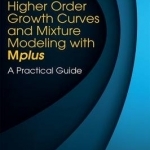
Higher-Order Growth Curves and Mixture Modeling with Mplus: A Practical Guide
Kandauda A. S. Wickrama, Tae Kyoung Lee, Catherine O'Neal and Frederick O. Lorenz
Book
This practical introduction to second-order and growth mixture models using Mplus introduces simple...

Latent Variable Modeling with R
W. Holmes Finch and Brian F. French
Book
This book demonstrates how to conduct latent variable modeling (LVM) in R by highlighting the...

The Extraordinary Leader: Turning Good Managers into Great Leaders by John Zenger & Joseph Folkman
Business and Book
App
This free sample contains the first chapter and access to the full book requires an in-app purchase...

bting English - Trading English
Catalogs and Business
App
Trading English is the language to adapt to working life requirements for the purpose of covering...

Hopster: Kids TV & Learning
Education and Games
App
Explore the immersive, award-winning world of Hopster. With fun, educational games, nursery rhymes,...
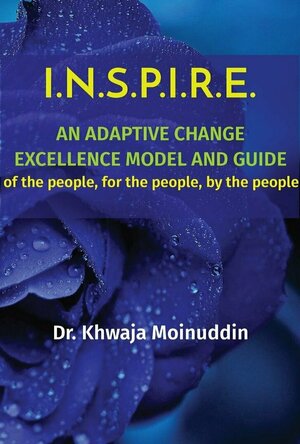
I.N.S.P.I.R.E.
Book
Are you tired of change initiatives falling flat? Frustrated by resistance and lackluster results?...
